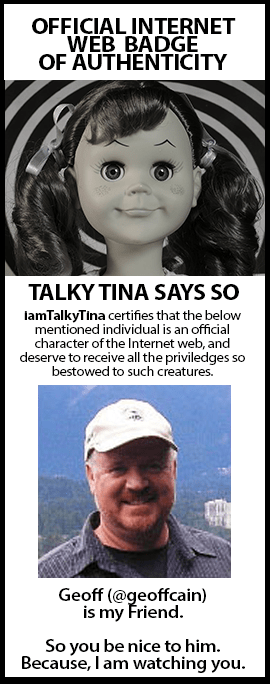I love all the arguments from the 1990s that were leveled at online teaching and learning that are now being leveled at MOOCs. I re-read all of my favorite straw-man hits from the 90s including the digital divide, lack of credibility, perception by the establishment, lack of interaction, etc. all remixed for the MOOC era.
Currently, educators and journalists struggle to write about MOOCs because the term MOOCs covers a broad category of online courses. When they are writing about MOOCs, they tend to only be thinking of the latest wave of entrepreneurial colleges like Corsera – they do not understand that MOOCs have been successfully working in places like the University of Manitoba and Canada’s open university, Athabasca. Those are referred to as the “Connectivist MOOCs” or cMOOCs originally founded by Stephen Downes and George Siemens. And that folks like Jim Groom have been successfully running task-based MOOCs like DS 106 for years before MOOC became the latest scary innovation.
The current jeremiads are being written by journalists and educators who can’t distinguish a collection of videos (such as Khan Academy) in YouTube from an online course, have little experience with online learning and no experience with MOOCs (or a single experience with a particular kind of MOOC with which they try to define the whole phenomena).
I am amazed at how few educators get the money issue. There is a lot of hand-wringing out there around questions like “why would the students pay for my class when they can go to MIT or Stanford for free?” The answer is usually something as smug as John Marks’ conclusion “they are for self-improvement, we are for self-formation.” There are students out there who need the information that MOOCs are providing because they may not live near a college or have the time and money for the “self-formation” experience that Marks is promising.
The criticisms against MOOCs generally fall along the same lines as the arguments they were using against online education – MOOCs are bad because students won’t be able to socialize, make connections, join clubs and fraternal organizations, participate in sports, see the instructor talk, and they will be reading on computers instead of sipping sherry in a big leather chair reading a first edition of Keats. How could a MOOC replicate that? Never mind the fact that many students do not have the opportunity of socializing and making connections in college. Some students 20 hours a week and commuted to college.
This points to some fundamental misconceptions about online learning and why students take online classes. Typically, they are not taking them to replicate the “college experience” – they are taking them because they cannot get to the college experience. I have been excited about MOOCs as I have been about online eduction, open education resources, and open textbooks because they are opportunities open up education to more people who would otherwise not get it.






